TORONTO (Sep. 18) — The evil empire has swallowed its petulant cousin.
Hockey’s most–popular team is now fully owned by one of Canada’s most–unpopular labels: Rogers. Or, “Robbers”, as the company is often referred to in on–line babble. Whatever you wish to call the communications monolith, understand that it now controls everything Maple Leafs, top to bottom. Bell Canada, the petulant cousin, offered up the empire for a mere $4.7 billion (or, one month of wireless proceeds 😛 ). Rogers could not resist and underwrote one of the biggest checks in Canadian sports history. It resulted in Rogers now controlling 75 percent of Maple Leaf Sports and Entertainment. With 20% remaining in the hold of Kilmer Sports [Larry Tanenbaum] and 5% belonging to the Ontario Municipal Employees Retirement System (or OMERS), a public pension fund.
Other than Rogers now becoming a monopoly for professional sport in Toronto (God help all dedicated fans), the average Joe isn’t likely to notice a particular change once the puck is dropped on the National Hockey League season. The Maple Leafs will continue to threaten and/or establish franchise scoring records in the regular schedule… only to capitulate when the stakes increase. Ownership could revert to the ancestors of Conn Smythe and that would not change. Gazillions will be dropped on No. 34 jerseys with the ‘C’ now stitched near the left shoulder. And, Scotiabank Arena will again be bursting at the seams for a midweek home encounter with Columbus. What might change is the manner in which the game is presented to television viewers and radio listeners across Canada. At least temporarily, Bell is no–longer beholden to the Maple Leafs. Rogers, on the other hand, is a kissing cousin of the Blue and White. MLSE will have license to exert greater control over Sportsnet and Hockey Night In Canada. By comparison, TSN, the sports arm of Bell, can put aside its wariness of a hockey lodge mate and present a more–balanced approach to the “home” team (even while continuing to air Leafs regional telecasts).
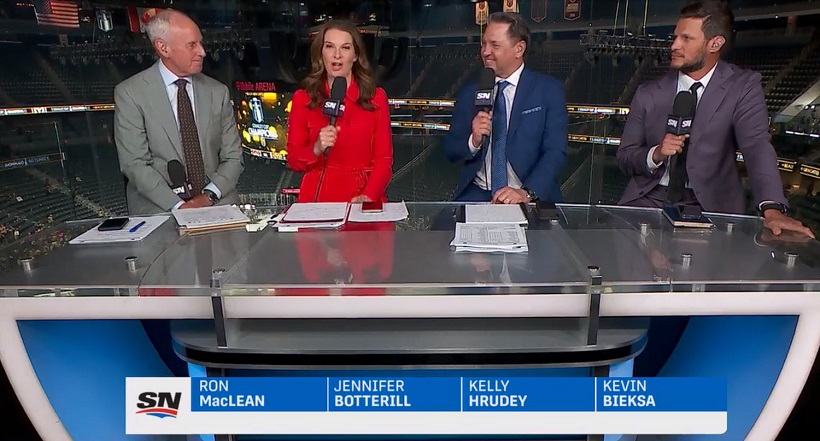
But, how much of the $4.7 billion received from Rogers will Bell put aside for a not–so–friendly takeover of national TV hockey rights in our country? Presuming, that is, an effort by Rogers to retain ownership of Hockey Night In Canada once its 12–year, $5.2 billion pact with the NHL expires after the 2025–26 season. If TSN and CTV, on behalf of Bell, make a bid and secure national TV rights, Hockey Night will revert to the bitter rival of Rogers Communications. Which could be a big win for hockey viewers in the Golden Horseshoe of southern Ontario, given that Bell would no–longer be in direct cahoots with MLSE or the Maple Leafs. This, of course, is not to discredit the current presentation of HNIC. Ron MacLean, Elliotte Friedman, Kevin Bieksa and Co. do not require my endorsement. An alteration, in two seasons, of the hockey television landscape would invariably create much intrigue and potential turmoil in the sports broadcasting industry. Which frequently occurs when big business changes hands. Such a scenario involving Bell and the NHL could reduce what is now, more than ever, the biggest conflict–of–interest in Canadian broadcasting annals: the Maple Leafs fully owning the sports network that covers the team and the Saturday night staple that televises their games. It’s odious enough, at times, with the “Rogers/Blue Jays Baseball Partnership” we’re reminded of during every telecast from the Dome and abroad. A potential “Rogers/Leafs Hockey Partnership” would, in no way, benefit viewers in any part of the country.
A Bell takeover would end the decades–long liaison between CBC and Hockey Night In Canada. During the Rogers proprietorship, CBC has continued to televise Saturday games involving, primarily, Toronto and Montreal. The arrangement between free and cable networks would revert to CTV and TSN, which are owned by Bell.
All of this, of course, could be turned upside down by one of the Internet behemoths. Amazon has already purchased, from Rogers, national TV rights for Monday night hockey in the next two seasons. Whether or not it indicates that Rogers is closing out its commitment to the NHL will be determined. If, however, such an international conglomerate, founded by the second–wealthiest person in the world (Jeff Bezos), wants part of the action, it will take the biggest chunk it desires. Even Rogers and Bell pale in the reflection of Amazon. So, the TV sports landscape could be unrecognizable in the next three years. Bits and pieces of broadcasting rights would likely be sold and distributed to multiple providers, TV and wireless. How that would change the ingrained presentation of Hockey Night In Canada is anyone’s guess. If, in fact, the title continues on Saturday as it has since 1952.
As forever, dollars will determine the outcome.

In the interim, it will be intriguing to detect even slight differences in tone from TSN as it pertains to the Leafs, now separate entities. As mentioned, this is a potential windfall for TV viewers in southern Ontario… and, particularly, those abroad that abhor the Maple Leafs for controlling the national hockey narrative. TSN has an opportunity to distance itself from the conflict involving the parent company’s former investment in the hockey club. Rogers, on the other hand, is nearly as beholden now to the Leafs as the Blue Jays, which it owns outright. Tanenbaum has more–closely liaised with Bell than Rogers (he and TSN effectively own the Toronto Argonauts). So, it may result in the popular sports figure (he’ll be 80 next July) divesting in MLSE. If so, Rogers could ultimately control 95% of the Maple Leafs. Which is somewhat foreboding given the company’s inability to craft a championship–caliber baseball team over the span of two decades (it purchased the Blue Jays in January 2004). Rogers knows how to make money and spend money. It does not know how to win at the highest level of pro sport. Not yet, anyway.
ORGANIZING NHLMEDIA GUIDES — Part 1
I have more than 1,200 NHL media guides, from 1960–61 to 2007–08. It’s been more than 15 years since teams published these colorful books, choosing to go digital. They are gaining in value each day. In Part 1 of a series, here are media guides from the early expansion era, beginning in 1967–68, when the NHL doubled to 12 teams:
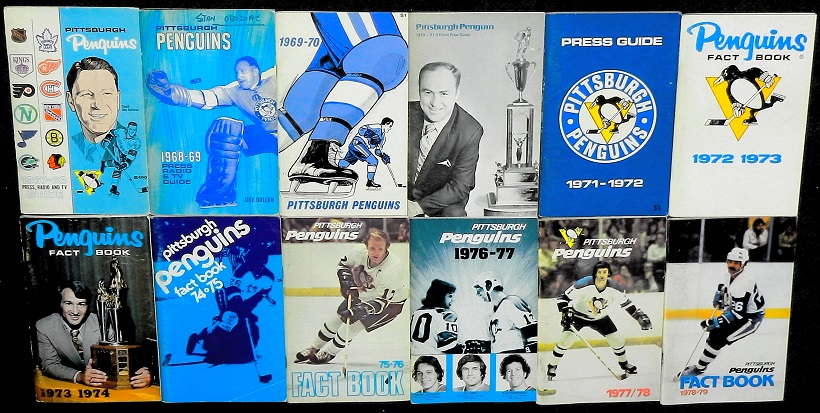
THE FIRST 12 SEASONS OF THE PITTSBURGH PENGUINS, 1967–68 TO 1978–79.
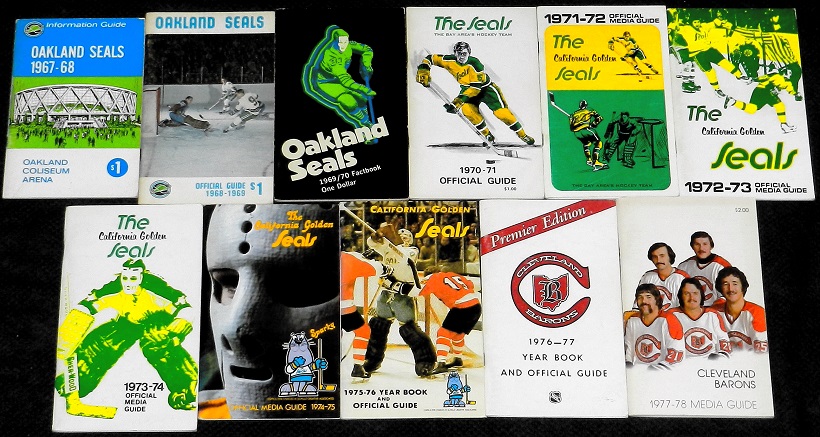
ALL NINE ISSUES OF THE OAKLAND/CALIFORNIA GOLDEN SEALS (1967–68 TO 1975–76). AND, BOTH FROM THE CLEVELAND BARONS (1976–77 / 1977–78). THE SEALS MOVED TO RICHFIELD, OHIO AFTER THE ’75–76 SEASON. THE BARONS MERGED WITH THE MINNESOTA NORTH STARS FOR 1978–79.
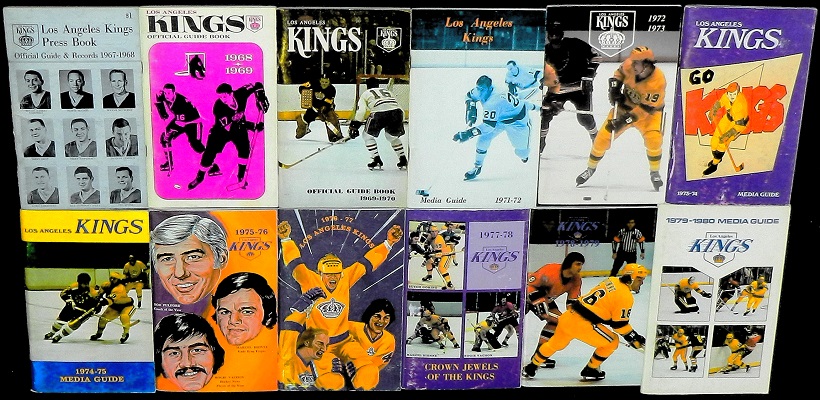
THE FIRST 12 SEASONS OF THE LOS ANGELES KINGS, EXCEPT FOR 1970–71, WHEN NO MEDIA GUIDE WAS PUBLISHED. FROM THE ERA OF PURPLE AND GOLD AT THE FORUM IN INGLEWOOD, Calif.
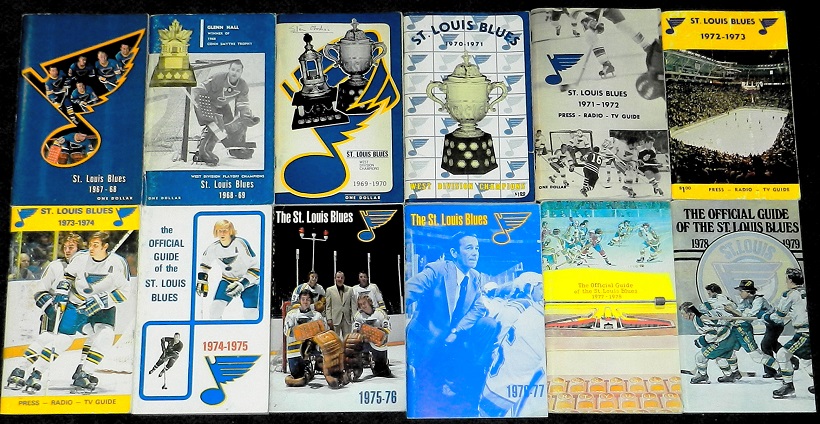
THE FIRST 12 SEASONS OF THE ST. LOUIS BLUES (1967–68 TO 1978–79). THE BLUES, COACHED BY SCOTTY BOWMAN, PLAYED FOR THE STANLEY CUP IN THE FIRST THREE YEARS OF EXPANSION.
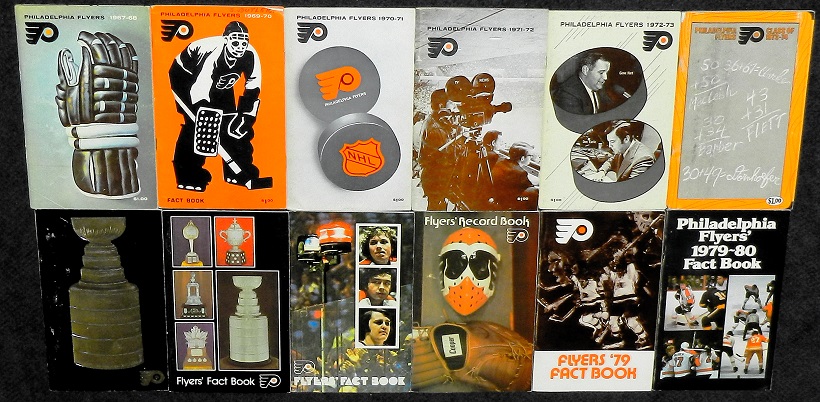
I’M MISSING THE 1968–69 PHILADELPHIA FLYERS MEDIA GUIDE AMONG THE FIRST 12 IN TEAM HISTORY. INCLUDED, HERE, ARE GUIDES FROM THE 1974 AND 1975 STANLEY CUP VICTORIES.
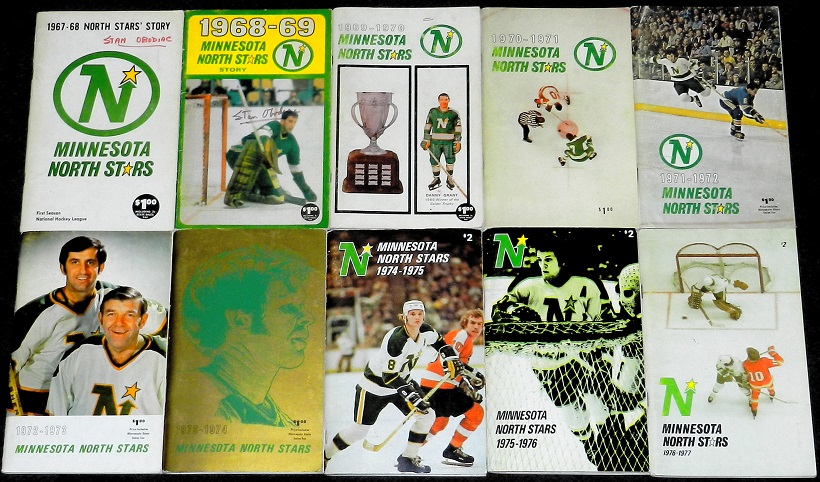
THE FIRST TEN SEASONS OF THE MINNESOTA NORTH STARS (1967–68 TO 1976–77).
EMAIL: HOWARDLBERGER@GMAIL.COM

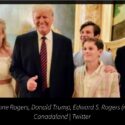
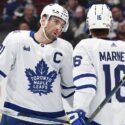
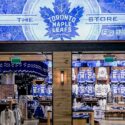

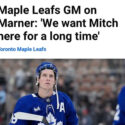



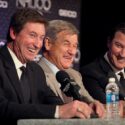


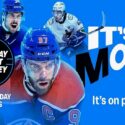
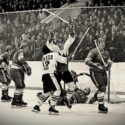












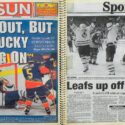

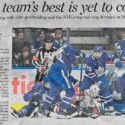


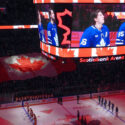




Tne Kings did publish a very limited 1970-71 Press guide on newspaper grade paper. I have send a copy of the front pager to you on email. John Wolf told me years later they may have done 200 copies.
Now we know why Keith Pelley was brought in to be the CEO of MLSE. It was to negotiate the deal for Rogers to become Majority Owner of Maple Leaf Sports and Entertainment. The future of the Maple Leafs, Raptors, Argonauts, and Toronto FC looks a little cloudy with the change in Ownership.